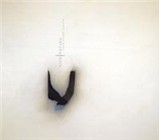Home » Jazz Articles » Album Review » Nine Horses: Snow Borne Sorrow
Nine Horses: Snow Borne Sorrow
And yet, despite his seemingly infinite interest in all things musical, his body of work shows surprising consistency and cohesion when taken as a whole. Nine Horses: Snow Borne Sorrow is a return to the pop territory of Dead Bees on a Cake (Virgin, 1999) and reunites him with drummer, brother, and Japan alumnus Steve Jansen. But even Sylvian at his most accessible is filled with sonic and structural surprises that make for listening that steadfastly avoids the predictable.
Like Dead Bees, the writing on Nine Horses leans towards softer cushions of sound, despite Sylvian's sometimes paradoxically bleak lyrics. Organic and processed sounds are blended with live playing and sampled programs to create rich orchestral textures that vary from track to track. "Wonderful World" revolves around Keith Lowe's robust double-bass playing and Jansen's lightly swinging 9/8 rhythm, but it broadens the textural landscape with assorted string and keyboard samples, while Swedish singer Stina Nordensam's almost child-like tone contrasts with Sylvian's warmer tone.
Nordensam is, in fact, only one of a number of Scandinavian artists whom Sylvian enlists for Nine Horses. The best known is Norwegian trumpeter Arve Henriksen, whose shakuhachi-like tone is used to great effect on "Darkest Birds," which alternates between softer verses and an edgier chorus driven by heavily-distorted guitars. He's also featured on "Snow Borne Sorrow," which fluctuates between verses couched in strange electronic squawks and burbles and more organic choruses based around acoustic guitar, trumpet, and bass.
It's Sylvian's attention to the minutest detail, and his ability to bring together textures that—on paper, at least—would seem to have nothing in common that make his songs so consistently interesting. Even when he resorts to relative conventional changes, as he does on the I-IV pattern of "The Day the Earth Stole Heaven," his arrangements are so imaginative—and his rhythmic displacements so intriguing—that they never sound commonplace.
With all the studio wizardry involved it's unlikely that much of Nine Horses could be performed live. Still, at the core of Sylvian's orchestral vision are songs strong enough to stand on their own in pared-down versions. And that's what ultimately makes Nine Horses such a compelling record—intriguing textures and sonic combinations aside, it's as good a collection of songs as Sylvian has written to date.
Track Listing
WOnderful World; Darkest Bird; The Banality of Evil; Atom and Cell; A History of Holes; Snow Borne Sorrow; The Day the Earth Stole Heaven; Serotonin; The Librarian.
Personnel
David Sylvian
vocalsDavid Sylvian: keyboards, guitar, vocals; Steve Jansen: sample programming, drums, percussion, keyboards; Keith Lowe: double bass (1), bass guitar (2, 5, 7, 9); Arve Henriksen: trumpet (1, 4, 6); Stina Nordensam: vocals (1); Burnt Friedman: keyboards, editing, drum programming, sequencing, toy piano, programming, MS 20 synthesizer, vocoder, editing, sequenced loops, pan on (3, 5, 7, 8, 9); Neal Sutherland: bass guitar (3); Riff Pike III: electric guitar (3); Morten Gronvad: vibraphone (3, 5, 7, 9); Carsten Skov: vibraphone (3); Hayden Chisholm: clarinet on (3, 7, 8, 9), saxophone (5, 7); Thomas Hass: 1st saxophone solo (3), saxophone on (7); Theo Travis: 2nd saxophone solo (3), flute, saxophone solos (5); Marcina Arnold: backing vocals (3); Eska G. Mtungwazi: backing vocals (3); Ryuichi Sakamoto: piano, piano treatments (4, 6); Tommy Blaize: backing vocals (4, 7, 8); Derek Green: (4); Beverlei Brown: backing vocals (4, 7, 8); Andrea Grant: backing vocals (4); Tom Motzer: electric guitar (5, 8, 9), acoustic guitar (7); Tim Eisenberg: additional guitar (5); Joseph Suchy: electric guitar (7); Daniel Schroeter: bass guitar (8).
Album information
Title: Snow Borne Sorrow | Year Released: 2006 | Record Label: SamadhiSound
< Previous
Fillmore West 1969: The Complete Reco...
Next >
Unity of Action
Comments
Tags
For the Love of Jazz
 All About Jazz has been a pillar of jazz since 1995, championing it as an art form and, more importantly, supporting the musicians who create it. Our enduring commitment has made "AAJ" one of the most culturally important websites of its kind, read by hundreds of thousands of fans, musicians and industry figures every month.
All About Jazz has been a pillar of jazz since 1995, championing it as an art form and, more importantly, supporting the musicians who create it. Our enduring commitment has made "AAJ" one of the most culturally important websites of its kind, read by hundreds of thousands of fans, musicians and industry figures every month.




















